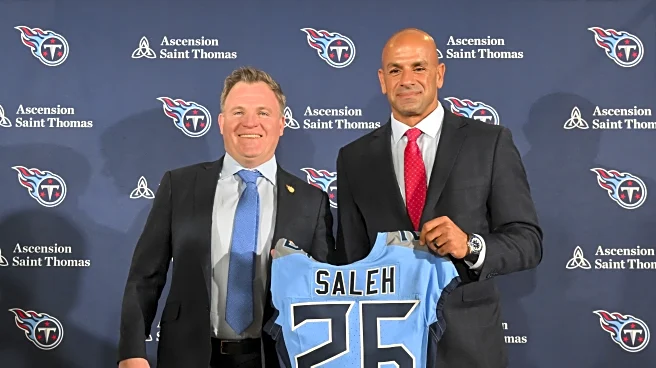What's Happening?
The FDA has introduced a PreCheck program aimed at encouraging the onshoring of drug production in the United States. This initiative is part of a broader effort to promote domestic manufacturing of critical medicines, responding to an executive order. The program consists of two main components: providing early technical advice to selected manufacturers before their facilities become operational, and holding pre-submission meetings to expedite assessments of quality information. During a full-day meeting held at the end of September, industry representatives from companies such as AbbVie, Amgen, Eli Lilly, and Sanofi expressed positive views on the proposal. However, they also highlighted existing regulatory hurdles that the program does not address, such as the timing of inspections and the process for authorizing post-approval changes.
Why It's Important?
The FDA's PreCheck program is significant as it seeks to strengthen the U.S. pharmaceutical manufacturing sector, which is crucial for ensuring a resilient and secure domestic supply chain. By fostering proactive collaboration between the FDA and industry, the program aims to streamline the establishment of new manufacturing plants, potentially reducing dependency on foreign production. This initiative could lead to increased job creation and economic growth within the U.S. pharmaceutical industry. However, the program's current scope may not fully address the regulatory challenges faced by existing production facilities, which could limit its overall impact on the industry.
What's Next?
Industry representatives have the opportunity to provide further feedback to the FDA through a call for written comments, which is scheduled to close on October 30. This feedback will be crucial in shaping the FDA's plans for the PreCheck program and addressing broader regulatory issues. The FDA may need to connect the PreCheck initiative with other programs to effectively tackle the challenges faced by drug manufacturers. The outcome of these discussions could lead to adjustments in the program's scope and implementation, potentially enhancing its effectiveness in promoting domestic pharmaceutical manufacturing.
Beyond the Headlines
The PreCheck program represents a shift towards a more collaborative regulatory approach, which could have long-term implications for the pharmaceutical industry. By prioritizing proactive collaboration over reactive oversight, the FDA is setting a precedent for future regulatory frameworks. This approach may encourage innovation and efficiency in drug manufacturing, ultimately benefiting consumers through faster access to new medicines. Additionally, the program's focus on onshoring aligns with broader economic and political goals of reducing reliance on foreign production and enhancing national security.










